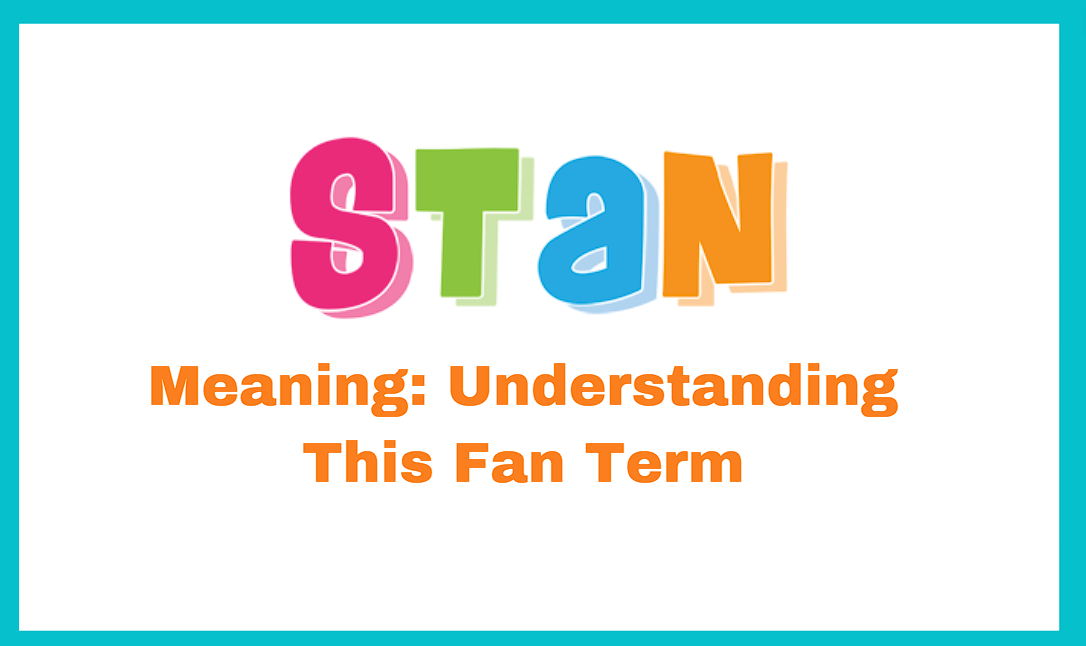In the ever-evolving landscape of modern slang, the term “STAN” has emerged as a multifaceted concept with a range of meanings. The word “STAN” has become popular in today’s language, starting from a song by Eminem.
Over time, it has taken on different meanings, from being a huge fan of something or someone to showing obsessive behavior. It’s a term we often see on social media, and knowing its different meanings helps us understand how language and culture have changed.
Meaning 1. STAN as a Fan
The term “STAN” is most commonly used to describe someone who is an overly enthusiastic or obsessive fan of a celebrity, artist, or public figure. It refers to someone who admires or supports someone intensely but can also be used humorously or positively.
Example:
- “I totally stan for Taylor Swift, her music is everything!”
- “The K-pop stans are always trending on social media.”
Meaning 2. STAN in Pop Culture and Social Media
In online communities, especially on platforms like Twitter, Reddit, and Instagram, “stan” has become a term for devoted fans who often engage in discussions, defend their idols, and promote their work. These fans actively support their favorite celebrities by posting and sharing content, protecting them from criticism, and creating fan art or content.
Example:
- “K-pop stan Twitter is always the most active during awards season.”
- “The Marvel stans always go wild when a new trailer drops.”
Meaning 3. STAN as Obsessive Behavior
In some cases, “stan” can have a negative meaning, referring to someone who is overly obsessive or even stalker-like in their admiration for a celebrity or figure. It might be used critically when someone’s fandom crosses into harmful or invasive behavior.
Example:
- “Some fans take things too far. They’re more like stalkers than stans.”
- “The stan behavior here is concerning, people need to respect boundaries.”
Meaning 4. STAN as a Joke
In casual conversations, people often use “stan” humorously to describe a strong liking or admiration for anything—not just celebrities. This could include food, places, or even day-to-day things.
Example:
- “I stan pizza so hard, it’s my favorite food!”
- “We stan a sunny day at the beach.”
Conclusion
“STAN” shows how language evolves with cultural trends. From a song’s storyline to a common term for dedicated fans, it highlights how words can reflect and shape our social interactions. As language keeps changing, “STAN” reminds us of the impact words have on our conversations.
Read More Blogs Like This:












Leave a Reply